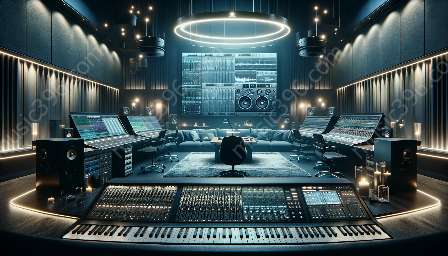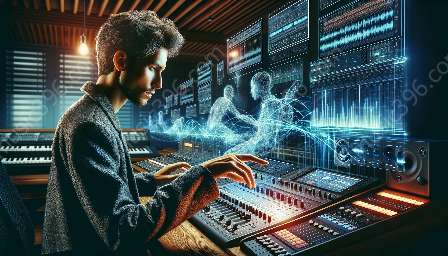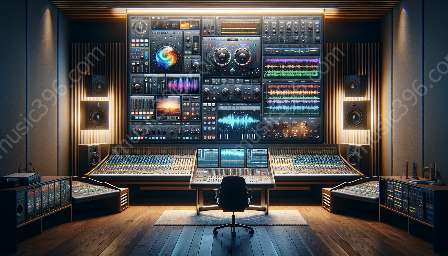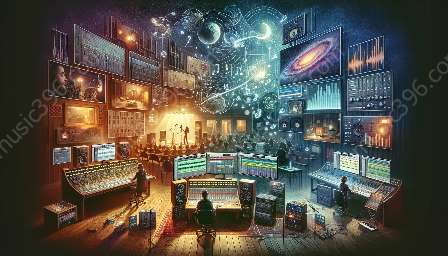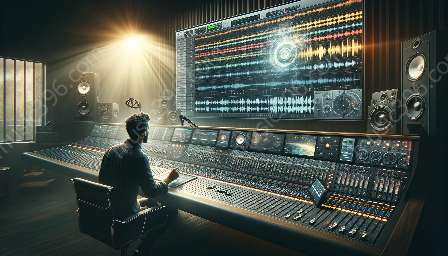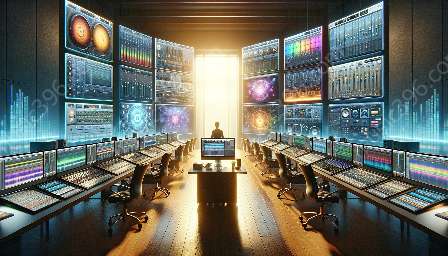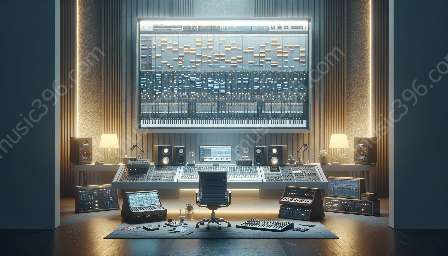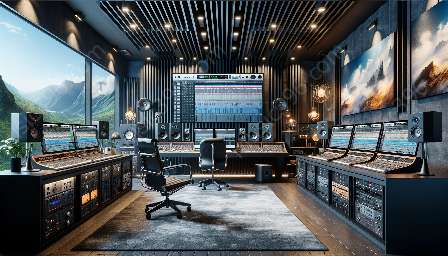Digital audio workstations (DAWs) have revolutionized the way music is created, produced, and performed. Within the realm of live music, DAWs play a crucial role in creating and controlling various musical effects and automations, empowering artists to deliver captivating performances. This topic cluster explores the impact of using DAWs in live performances, their significance in the music industry, and their contribution to the digital audio workstation landscape.
Understanding Digital Audio Workstations (DAWs)
Digital audio workstations (DAWs) are software applications designed to record, edit, mix, and produce audio tracks. These platforms provide a comprehensive suite of tools and features that enable musicians, producers, and sound engineers to craft professional-quality music. DAWs offer a wide range of functionalities, including multi-track recording, virtual instrument integration, audio effects processing, and automation capabilities.
The Evolution of DAWs in Live Performance
Historically, live performances heavily relied on traditional instruments, amplifiers, and analog devices to achieve desired sound effects and manipulations. However, the emergence of digital audio workstations has significantly transformed the live music landscape. DAWs have become indispensable tools for artists and live performers, allowing them to harness the power of advanced digital technologies to enhance their performances.
Using DAWs in Live Performance
The integration of DAWs in live performances has opened up a new realm of creative possibilities for musicians and performers. DAWs enable real-time manipulation of audio effects, such as reverb, delay, distortion, and modulation, enhancing the overall sonic experience for the audience. Through the use of MIDI controllers, musicians can seamlessly control and modulate DAW parameters, adding expressive and dynamic elements to live music performances.
Controlling Live Music Effects and Automation
One of the key roles of DAWs in live music is the control and implementation of various effects and automation. DAWs provide a centralized platform for managing diverse audio effects and automations, empowering performers to shape and modulate the sonic characteristics of their music in real time. From triggering pre-programmed effects to manipulating audio parameters on the fly, DAWs offer unprecedented control and flexibility for live music effects and automation.
Impact of Using DAWs in Live Performance
The utilization of DAWs in live performance has redefined the way artists engage with their audiences. By leveraging DAWs, performers can seamlessly integrate electronic elements, samples, and synthesized sounds into their live sets, blurring the boundaries between studio production and live performance. This seamless integration enables artists to deliver immersive, transformative, and dynamic live experiences, captivating audiences with innovative sonic expressions.
Contributing to the Digital Audio Workstation Landscape
As live performances continue to embrace digital technologies, the role of DAWs in the music industry continues to expand. DAWs have become integral components of modern live setups, serving as the epicenter for crafting and controlling captivating music effects and automations. Additionally, the ongoing advancements in DAW software and hardware integration are driving the evolution of live music performances, empowering artists to push the boundaries of creativity and sonic innovation.
Conclusion
The integration of digital audio workstations (DAWs) in live music has revolutionized the way artists create, control, and deliver captivating performances. From real-time manipulation of effects to seamless automation control, DAWs have become indispensable tools for shaping the sonic landscape of live music. As the music industry continues to embrace digital technologies, the utilization of DAWs in live performance will undoubtedly play a pivotal role in defining the future of live music experiences.

